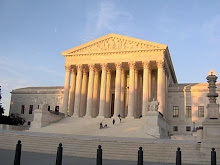This month's issue of the American Journalism Review has an interesting article on the use of Facebook and other social networking sites as journalistic tools. The story discusses the recent trend of professional journalists signing up for Facebook profiles as a way of connecting with each other and finding sources. Some of those interviewed say they use Facebook for fun but do not see it as a good journalistic tool. While I have no way of knowing how the site will serve me in the professional world, it is an incredibly useful tool in my newsroom.
As a college reporter, I've become accustomed to using Facebook as a way of tracking down sources for every type of story. Many students who "opt out" of the school's directory post their phone numbers right on Facebook, and those who list their interests in pubic profiles are often easy targets for Emerald reporters looking for sources. I've used it to track down members of the various student unions, find students in a specific major or simply find people with a shared interest.
We have also used Facebook as a tool in cases where we've had to report on tragedies. For example, in his excellent coverage of the plane that disappeared near Indonesia (of the three Americans on board, two were U of O students), Eric Florip was able to use Facebook as a way of getting in touch with friends of the UO students and quoted people who had posted on the girls' "walls." Another reporter, Tess McBride, also cited Facebook in her profiles of the students . In a story that gained worldwide attention, it was difficult to get in touch with people who knew these girls, but Facebook was one way to do so. I can imagine that the site would be useful if, God forbid, there should ever be a shooting on campus. It would be a way for students around campus to quickly update one another and for the reporters to find out where their peers were at the time. It could also be a good way of gaining some insight into the personal life of any shooter. ...
One of the sources in the AJR story, Phillip Blanchard of the Washington Post, is quoted as saying he does not think Facebook is a useful journalistic Tool because he worries about the potential of fraud. He is quoted as saying "'People aren't always who they seem to be. For example, you can't even be sure who I am. ... Verification is very important in journalism, which apparently is being forgotten a lot, or never learned.'"
As an interesting side note, I will point out that Phillip Blanchard is one of my Facebook friends. I have never met him, but he sent me a friend request when I was working as a copy editing intern in Washington, D.C. Occasionally, he'll post links or questions on Facebook and the posting shows up on my "news feed." I joined a discussion forum called "Testy Copy Editors" that Blanchard moderates and in one discussion thread, someone said that a good reason to go to the American Copy Editors Society conference is the opportunity to hear John Russial speak. It's interesting how the Internet can be used as a tool for making those types of connections.
While I do see the potential for fraud in finding sources online, I have some confidence that people on Facebook are who they claim to be. I wouldn't recommend that teenage girls go meet up with people claiming to be teenage boys, but I think that the type of people who would respond to a journalist's request are probably fairly honest in their profiles.
Admittedly, it is hard to figure out what's real and what isn't since Facebook relies on people to self-report their interests/affiliations; however, I think that people generally report those things truthfully. I also think that if I track down someone for an interview, it will be easy to tell whether they're telling the truth about who they are. Facebook is a way of finding out what people's affiliations or interests are, but you should still try to verify who the person is. It's possible that I am more trusting of Facebook than Blanchard simply because of my age and the fact that Facebook was created for college students and I know how people talk about it, but I do think it's a great tool.


2 comments:
Well, thank you for the compliment, Jobetta...
I think one of the reasons older journalists are more reluctant to use Facebook as a reporting tool is that they're simply not familiar with it like the college crowd. Student journalists probably trust Facebook because they know their peers do.
Yet, somehow, I can't envision many professional journalists joining the "zombies vs. pirates" war that was going on for a while...
At some point, I declared myself to be the Switzerland of the zombie versus pirate battle.
I agree with you. Students trust Facebook because for a while, we were the only ones using it. It's slightly sketchier now and is becoming more and more like Myspace. I did just discover The New York Times "Daily News Quiz," which is interesting.
I just hope Facebook doesn't come up with a Trival Pursuit application. I'd never turn it off.
Post a Comment